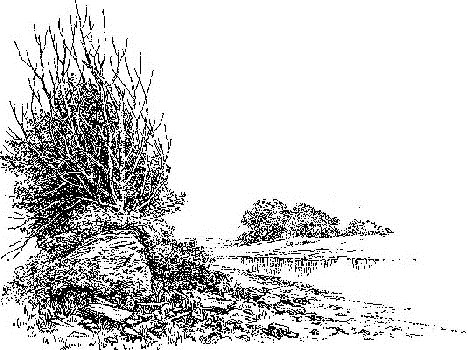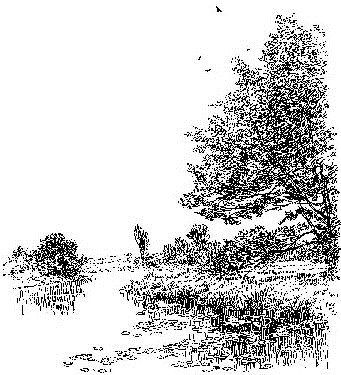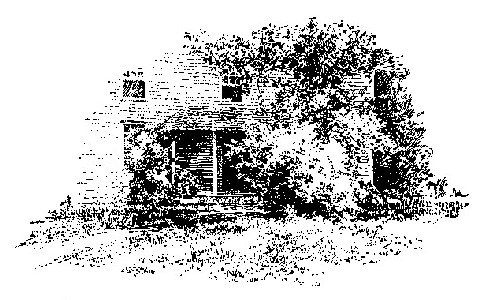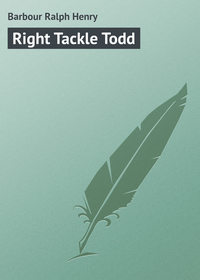 полная версия
полная версияThe Lilac Girl
"Thank you, sir; I'd think a great deal of it. Will you have some more tea?"
"No, no more tea, Zephania. No more anything. You may take the things out."
Later in the evening came Doctor Crimmins, very regretful and full of arguments in favor of postponing action. When twilight passed they went out onto the porch with their pipes and glasses. They talked as friends talk on the eve of parting, often of trivial things, with long pauses between. The moon came up over the tree tops, round and full, and flooded the garden with silver.
"'The moon, serene in glory, mounts the sky,'" murmured the Doctor. "'The wandering moon'—how does it go? I'm thinking of some lines of Milton's. Let me see; ah!"
"'The wandering moon,Riding near her highest noon,Like one that has been led astrayThrough the heaven's wide pathless way.'"Later, when the lights of the village had disappeared one by one under the tranquil elms, the Doctor returned to the attack.
"Take another week to think it over, Herrick," he urged. "Who knows what may happen in a week, eh? Women's minds have been known to change before this, my friend."
"Hers won't," answered Wade, convincedly. "Her note left little doubt as to that."
"But don't you think you ought to see her again?"
"Yes, I shall call in the morning to say good-by."
"H'm, yes," muttered the other, doubtfully. "I know what such a call is like. You go into the parlor and Miss Eve and Miss Mullett come in together, and you all talk a lot of pasty foolishness for five minutes and then you shake hands and leave. That doesn't help any. See her alone if only for a minute, Herrick; give yourselves a chance; bless my soul, lad, don't you realize that you can't risk spoiling two lives for the want of a moment's determination? If it's pride, put it in your pocket!"
"I'd do anything," replied Wade, with a little laugh, "if I thought it could do any good. The fact is, Doctor, I'm pretty certain that the other fellow is too strong for me."
"The other fellow! I don't believe there is or has been another fellow! I'd bet my bottom dollar that you two young folks care for each other. You've gone and made a mess of things between you, and damned if I don't think it's my duty to meddle!"
"Please don't," said Wade. "It's good of you to want to help, but—what's the use of talking about it? Miss Walton knows her own mind—"
"She didn't a couple of days ago," said the Doctor, gruffly. "She asked my advice about you. I told her to take you if she wanted you, and she said she didn't know whether she did or didn't."
"She seems to have found out since then," said Wade, dryly.
"It must have been sudden, then. Look here, was there any quarrel? Any misunderstanding?"
"None. I haven't spoken to her since Saturday night."
"Well, it beats me," said the Doctor, leaning over to knock the ashes from his pipe. "I'm plumb certain she cares for you, and just as certain that you're making a mistake by running away." He stood up and scowled fiercely at the moon. "Well, I must be off. I'll see you to-morrow. You're not going until afternoon, you said?"
"I leave here about two," said Wade. "I shall spend to-morrow night in Boston and take a morning train west."
"Well, you know my opinion," the Doctor growled. "Sleep on it; think it over again. Good night."
After the Doctor had gone Wade sat for a while longer on the porch. He didn't feel the least bit sleepy, and the Doctor had shaken his determination in spite of himself. Supposing, after all—then he shook his head and sighed. There was the note. He fumbled in his pocket and found it and looked at it in the moonlight. There was no use in imagining things when that sheet of paper stared him in the face. He strove to reread the message, but the light was too faint. He folded it again, started to drop it back in his pocket, hesitated, and then tore it savagely into tiny bits and tossed it over the side of the porch. It was as though he had destroyed a malign influence, for, even as the little white fragments went floating down into the shadow, a new hope crept into his heart, and he went upstairs, arguing this way and that in a sudden fever of mental energy. In the bedroom there was no need to light his lamp, and he started to undress in the broad path of moonlight that flooded the little chamber. But after he had thrown his coat aside he forgot to go on with the process, and after many minutes he found himself leaning on the sill of the open window staring at the moon.
"Bed?" he muttered, in a strange excitement. "Why should I go to bed? I'm not sleepy. I'm moon-struck, probably. I'm full of crazy thoughts and fancies. I don't want to sleep, I want to walk—and think. I want to be out of doors."
He found his way down the stairs, unmindful of the fact that he had left his coat behind, and stepped out into the warm fragrant night. The road was a dark cavern, splotched with silver. He turned away from it, seeking the open spaces of the garden, his shadow stalking beside him, purple-black in the moonlight. The air scarcely moved.
The world was hushed and heavy with sleep. Once, as he passed under the drooping branches of a tree, a bird stirred in its nest with a sleepy cheep. He made his way around the house at the back, absentmindedly feeling for his coat pocket and his pipe. He had left it upstairs, but no matter. Why should one want to defile such a night as this with tobacco-smoke, anyway? He stopped once under a pear-tree and wondered why his pulse raced so.
"What's the matter with me?" he murmured. "Am I going to be sick? Or am I just plain locoed by that moon? Well!"
He sighed, laughed softly at himself, and went on. He was in the shade now, but beyond him was a moonlit space where stood the little arched gateway in the hedge. He went toward it, his footsteps making scant sound on the soft turf; reached it; passed—but no, he didn't pass through just then. Instead he stopped suddenly, drew in his breath and stared wonderingly into the startled face confronting him.

XVI

For a little time, perhaps as long as it took his heart to pound thrice in wild tumult, they confronted each other in silence. Then—"Eve!" he cried, softly; and—
"You!" she whispered.
Again a silence, in which he could have sworn that he heard his heart beating with gladness and the stars singing in the heavens.
"I—I wasn't sleepy," she said, breathlessly.
"Nor I. I didn't want to sleep. I wanted"—he stepped through the gateway and seized the hand that lay against her breast—"you."
"Please!" she cried, straining away at the length of her slender arm. "You mustn't! You got my note!"
"And tore it to fragments—an hour since! I don't remember a word of it!"
"But I meant it!"
"You didn't!"
"Let me go, please; I ought not to be here; I don't want to stay here."
"You must stay until—but you're trembling!" He dropped her hand and stood back contritely. "Have I scared you?"
"Yes.... I don't know.... Good night."
She turned, but didn't go. The moonlight enfolded her slim form with white radiance and danced in and out of her soft hair. Wade drew a deep breath.
"Will you listen a moment to me, please?" he asked, calmly.
She bowed her head without turning.
"You said in your note that you did not care to be made a convenience of. What did that mean, please?"
"You know!"
"But I don't. You must tell me."
"I don't wish to. Why do you try to pretend with me?" she asked with a flash of scorn.
"Pretend! Good Lord, is this pretense? What do you mean? Is it pretense to be so madly in love with you that—that yesterday and to-day have"—he caught himself up. "You must tell me," he said, quietly.
"I meant that I would not marry you to salve your conscience." She turned and faced him, her head back scornfully. "You thought some of that money should be mine and because I refused to take it you—you tried to trick me! You pretended you—cared for me. Don't I understand? You threatened one day to have your way, and you thought I was so—so simple that I wouldn't guess."
"You mean," he asked, incredulously, "that you think I want to marry you just so I can—can restore that money to you?"
"Yes," she answered, defiantly. But there was a wavering note in the word, as though she had begun to doubt. He was silent a moment. Then—
"But if I told you—convinced you that you were wrong? What then?"
There was no answer. She had turned her head away and stood as though poised for flight, one little clenched hand hanging at her side and gleaming like marble. He went toward her slowly across the few yards of turf. She heard him coming and began to tremble again. She wanted to run, but felt powerless to move. Then he was speaking to her and she felt his breath on her cheek.
"Eve, dear, such a thought never came to me. Won't you believe that, please? I care nothing about Ed's money. If you like I'll never touch a cent of it. All I want on this earth is just you."
His arms went around her. She never stirred, save for the tremors that shook her as a breeze shakes a reed.
"Am I frightening you still?" he whispered. "I don't want to do that. I only want to make you happy, dear, and, oh, I'd try very hard if you'd let me. Won't you, Eve?"
There was no answer. He held her very-lightly there with arms that ached to strain her close against his fast-beating heart. After a moment she asked, tremulously:
"You tore up—the note?"
"Yes," he answered. He felt a sigh quiver through her.
"I'm glad," she whispered.
Of a sudden she struggled free, pushing him away with her outstretched arms.
"You must stand there," she said, in laughing whispers. She crossed her hands, palms out, above her forehead to keep the moonlight from her eyes. "Now, sir, answer me truthfully. You didn't—do that, what I said?"
"No."
"And you won't say anything more about having your way?"
"No," he answered, with a happy laugh.
"And you won't ever even want it?"
"Never!"
"And you—like me?"
"Like you! I—"
"Wait! Stay just where you are, please, Mr. Herrick."
"Mr. Herrick?"
"Well,—I haven't learnt any other name."
"But you know it!"
"No," she fibbed, with a soft laugh. "Anyhow—well, so far you've passed the examination beautifully. Is there—is there anything more you have to say for yourself before sentence is passed?"
"Yes," he answered. "I came through the gate in the hedge." He went forward and dropped on his knee. "And I ask you to be my wife."
"Who told you?" she gasped, striving to recover the hand he had seized on.
"Miss Mullett."
"Traitress!" Then she laughed. "That was my secret. But I know yours."
"Mine? You mean—"
"Yes, about the name of your mine. I saw it on an envelope in the parlor the other night. I don't see why you didn't want me to know. I'm sure I think it was very sweet of Edward to name the mine after me." She looked down at him mischievously. He got to his feet, still holding her hands—he had captured both now—and looked down at them as they lay in his.
"It wasn't Ed who—I mean it wasn't exactly his idea," he said.
"You mean that it was yours?"
"Well, yes, it was."
"Indeed? But I suppose it was named after some one?"
"Ye-es."
"Another Evelyn, then," she said coldly.
"No—that is—well, only in a way."
"Let go of my hands, please."
"No."
"Very well. What was she like, this other Evelyn?"
"Like—like you, dearest."
"Oh, really!"
"Listen, Eve; do you remember once five years ago when a train stopped at the top of the Saddle Pass out in Colorado? There was a hot-box. It was twilight in the valleys, but up there it was still half daylight and half starlight. A little way off, in the shadow of the rocks, there was a camp-fire burning."
"Yes, I remember," she answered softly. "I thought we had been held up by train-robbers and I went out to the back platform to see. I didn't say anything to papa, because it might have scared him, you know."
"Of course," said Wade, with a smile.
"And so I went out and saw the track stretching back down the hill, with the starlight gleaming on the rails, and—"
"And the mountains in the west all purple against the sky."
"Yes. And there was a breeze blowing and it was chilly out there. So I was going back into the car when a dreadful-looking man appeared, oh, a—a fearsome-looking man, really!"
"Was he?" asked Wade, somewhat lamely.
"Oh, yes! And I thought, of course, he was a robber or a highwayman or something."
"And—he wasn't?" asked Wade, eagerly.
"No." She shook her head. "No, he was something much worse."
"Oh! What?"
"He was a deceiver, a—a Don Juan. He made love to me and made me promise never to forget him, and he promised to come and get me some day. That was five years ago. Why didn't you come?"
"Eve! Then—you knew? You've known all along?"
She fell to laughing, swaying away from him in the moonlight.
"Why didn't you tell me?" he asked, wonderingly.
"Why didn't you ask me? Yes, I knew from the moment I peeked in your window that day."
"Think of that! And I was sure you didn't remember at all. And now, after all that time, I've got you again, dear! It's wonderful!"
"Not so fast, please," she said, sternly. "You forgot me once—"
"I never forgot you."
"And you may do it again."
"I didn't forget you, dear. I still have that lilac you threw me. I—"
"You mean the one I dropped?" she asked, innocently.
"It was a week later that we found gold, Eve, and I named the mine for you. I worked hard that year, and—well, I'll be honest; I didn't forget you; you were always a sort of vision of loveliness in my memory; but—there was so much to do—and—"
"And you changed your mind. I see. And you never thought of poor me, waiting for you all these years!"
"I guess you forgot me quick enough," said Wade, ruefully. "When that other fellow came along, I mean."
"Stupid!" she whispered. "That was you."
"Me?"
"Yes, the you I met out there on the mountain, the you that made love to me and set my silly little girl's heart a-fluttering. Don't you think now it was wicked of you? Why, Wade—oh!"
"That's my name," he laughed.
"It's a funny name, isn't it?" she murmured, shyly.
"I suppose it is."
"But I like it. Oh, dear, I must go! It must be midnight!"
"No, only twenty minutes of," he answered, holding his watch to the light. "Don't go yet. There's so much I want to say!"
"To-morrow," she answered, smiling up at him. "Do you know that you're still holding my hands?"
"I don't know what I know," he answered, softly. "Only that I love you and that I'm the happiest man alive."
"Are you? Why?"
"Because you're going to marry me."
"I haven't said so," she objected.
"But you're going to?"
"To-morrow—perhaps."
"No, to-night—surely."
"To-morrow."
"To-night."
"Am I?" she sighed. "We-ell—do you want me to?"
"Yes," he answered, tremulously. He drew her to him, unresistingly. The moon made silver pools of her eyes. Her mouth, slightly parted, was like a crimson rosebud.
"Eve!" he whispered, hoarsely.
Her eyes closed and her head dropped happily back against his arm. The moonlight was gone now from her face.
Ages later—or was it only a few moments?—they were standing apart again, hands still linked, looking at each other across the little space of magic light.
"I must go now," she said softly. "Good night."
"Please, not yet!"
"But think of the time! Besides, it's quite—quite awful, anyway! Suppose Carrie heard of it!"
"Let her! You're mine, aren't you?"
"Good night."
"Aren't you?"
"Every little bit of me, dear, for ever and ever," she answered.
They said good night again a few minutes later and a little nearer the house. And again after that.
At a quarter to one Wade came to himself after a fashion at the end of the village street, smiling insanely at a white gate-post. With a happy sigh he turned homeward, his hands in his pockets, his head thrown back, and his lips pursed for a tune that forgot to come. A few steps brought him opposite the Doctor's house and the imp of mischief whispered in his ear. Wade laughed aloud. Then he crossed the street under the dark canopy of the elms and-pulled the office bell till it jangled wildly. A head came out of a window above.
"What's wanted?" asked the Doctor's sleepy voice. "Who is it?"
"It's Herrick. Come down, please."
After a moment the key turned and the Doctor, arrayed in a vast figured dressing-gown stood in the open door.
"Is it you?" he asked. "What's wrong? Who's ill"?"
"No one's ill, Doctor," said Herrick. "I just wanted to know if you had any remedy for happiness?"
Perhaps Wade's radiant, laughing face gave the Doctor his cue, for, after studying it a moment, he asked, with a chuckle:
"Have you tried marriage?"
"No, but I'm going to. Oh, I'm not crazy, Doctor. I was out for a stroll and thought I'd just drop by and tell you that I'd taken your advice and had decided not to leave to-morrow."
"Humph; nor the next day, either, I guess! Lad, is it all right? Have you seen her?"
"Yes, I've seen her and it's all right! Everything's all right! Look at this world, Doctor. Did you ever see a more beautiful one? For Heaven's sake reel off some poetry for me!"
"Go to bed," laughed the Doctor, "go to bed!"
"Bed!" scoffed Wade.
"H'm, you're right," said the Doctor. "Stay up and be mad as you can, my lad. Bay to the moon! Sing under her window! Act the happy fool! Lord, if I wasn't so old I'd come out and help you. Youth, youth! Now go away before I hate you for it!"
"You couldn't hate anything, you old fraud," laughed Wade. "Go back to bed if you won't sing or dance with me or recite verses. But first, congratulations, please."
"My dear fellow," said the Doctor as he clasped Wade's hand, "you don't need any one's good wishes, but I give mine just the same. It's good news to me, the best of news."
"Thanks, Doctor. Good night. I'm off to bay the moon."
"Good night, good night!"
The Doctor stood for a moment at the door and watched him pass across the strip of moonlight and become engulfed in the gloom of the elms.
"I wonder," he mused, "what he's done with his coat!" He chuckled as he closed the door, and sighed as he locked it. Then, instead of returning to the stairway, he passed into the study and walked across to the book-shelves. You would have thought that he would have had difficulty in finding What he wanted even in broad daylight in that confusion of volumes. But he put his hand at once on what he sought and bore it to the window where the moonlight shone. Bending closely, he turned the pages, paused and read half-aloud to the silent room:
"'Oh, love, first love, so full of hope and truth,A guileless maiden and a gentle youth.Through arches of wreathed rose they take their way,He the fresh Morning, she the better May,'Twixt jocund hearts and voices jubilant.And unseen gods that guard on either hand,And blissful tears, and tender smiles that fallOn her dear head—great summer over all!"THE END









